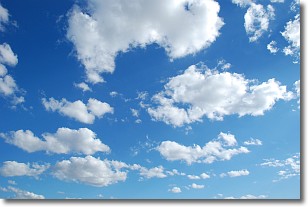Weather Alert in Arizona
Red Flag Warning issued June 20 at 8:28PM MST until June 21 at 8:00PM MST by NWS Flagstaff AZ
AREAS AFFECTED: Kaibab Plateau; Marble and Glen Canyons; Grand Canyon Country; Coconino Plateau; Yavapai County Mountains; Northeast Plateaus and Mesas Hwy 264 Northward; Chinle Valley; Chuska Mountains and Defiance Plateau; Little Colorado River Valley in Coconino County; Little Colorado River Valley in Navajo County; Little Colorado River Valley in Apache County; Western Mogollon Rim; Eastern Mogollon Rim; White Mountains; Black Mesa Area; Northeast Plateaus and Mesas South of Hwy 264
DESCRIPTION: MST Fri Jun 20 2025/ ...RED FLAG WARNING REMAINS IN EFFECT UNTIL 8 PM MST /9 PM MDT/ SATURDAY FOR MOST OF NORTHERN ARIZONA... * AFFECTED AREA...Locations near Alpine, Buffalo Pass, Chinle, Dilkon, Doney Park, Eagar-Springerville, Flagstaff, Forest Lakes, Fredonia, Ganado, Grand Canyon, Heber-Overgaard, Holbrook, Jacob Lake, Kayenta, Kykotsmovi, North Rim, Page, Pinetop-Lakeside, Prescott, Prescott Valley, Saint Johns, Seligman, Shonto, Show Low, Snowflake-Taylor, Tuba City, Valle, Whiteriver, Williams, Window Rock and Winslow. This includes portions of the Apache- Sitgreaves National Forest, Coconino National Forest, Kaibab National Forest, Prescott National Forest and Tonto National Forest. * WINDS...Daytime winds southwest at 20 to 30 mph with gusts up to 50 mph. Overnight winds south to southwest at 10 to 20 mph. * RELATIVE HUMIDITY...5 to 15 percent. * IMPACTS...The combination of gusty winds and low humidity can cause fire to rapidly grow in size and intensity before first responders can contain them.
INSTRUCTION: A Red Flag Warning means that critical fire weather conditions are either occurring or are imminent. A combination of strong winds and low relative humidities can contribute to extreme fire behavior. Please notify field crews of this Red Flag Warning.
Want more detail? Get the Complete 7 Day and Night Detailed Forecast!
Current U.S. National Radar--Current
The Current National Weather Radar is shown below with a UTC Time (subtract 5 hours from UTC to get Eastern Time).

National Weather Forecast--Current
The Current National Weather Forecast and National Weather Map are shown below.

National Weather Forecast for Tomorrow
Tomorrow National Weather Forecast and Tomorrow National Weather Map are show below.

North America Water Vapor (Moisture)
This map shows recent moisture content over North America. Bright and colored areas show high moisture (ie, clouds); brown indicates very little moisture present; black indicates no moisture.

Weather Topic: What is Condensation?
Home - Education - Precipitation - Condensation
 Next Topic: Contrails
Next Topic: Contrails
Condensation is the process which creates clouds, and therefore
it is a crucial process in the water cycle.
Condensation is the change of matter from a state of gas into a state of liquid,
and it happens because water molecules release heat into the atmosphere and
become organized into a more closely packed structure, what we might see as
water droplets.
Water is always present in the air around us as a vapor, but it's too small for
us to see. When water undergoes the process of condensation it becomes organized
into visible water droplets. You've probably seen condensation happen before on the
surface of a cold drink!
Next Topic: Contrails
Weather Topic: What are Cumulonimbus Clouds?
Home - Education - Cloud Types - Cumulonimbus Clouds
 Next Topic: Cumulus Clouds
Next Topic: Cumulus Clouds
The final form taken by a growing cumulus cloud is the
cumulonimbus cloud, which is very tall and dense.
The tower of a cumulonimbus cloud can soar 23 km into the atmosphere, although
most commonly they stop growing at an altitude of 6 km.
Even small cumulonimbus clouds appear very large in comparison to other cloud types.
They can signal the approach of stormy weather, such as thunderstorms or blizzards.
Next Topic: Cumulus Clouds
Current conditions powered by WeatherAPI.com




